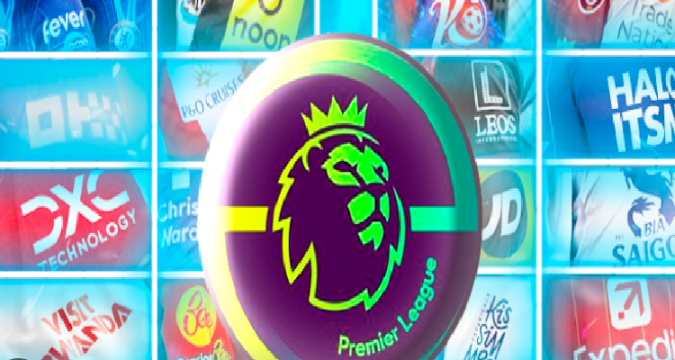
The English Premier League (EPL) is more than just a competition for football supremacy; it has become a significant financial powerhouse that influences the global sports landscape. One of the primary drivers of this economic success is sponsorship. From shirt sponsorships to stadium naming rights, sponsorship deals play a crucial role in the financial health of clubs and the league as a whole. Understanding the impact of sponsorship in the Premier League reveals how these partnerships shape the competition, enhance club revenues, and elevate the league’s global brand.
The Sponsorship Landscape
The Premier League has consistently attracted high-profile sponsors, both domestic and international, due to its vast audience and marketability. The league itself is broadcast in over 200 countries, reaching millions of viewers, which makes it a lucrative platform for brands looking to expand their visibility. Major sponsors have included household names like Barclays, Budweiser, and Coca-Cola, each seeking to capitalize on the league’s massive following.
At the club level, shirt sponsorship has become a primary revenue source. For instance, Manchester United’s partnership with TeamViewer, valued at around £47 million per year, exemplifies how clubs leverage their brand power to attract substantial financial backing. Similarly, Manchester City’s deal with Etihad Airways, reportedly worth £67.5 million annually, showcases how sponsorship deals can significantly impact a club’s finances, enabling investment in player acquisitions, facilities, and community programs.
Financial Impact on Clubs
Sponsorship revenue has a direct and transformative effect on the financial stability and growth of Premier League clubs. The influx of sponsorship money allows clubs to invest in their squads, leading to enhanced performances on the pitch. For instance, clubs with lucrative sponsorships can afford to sign top-tier players, thereby improving their chances of success in both domestic and international competitions.
Moreover, sponsorship deals often come with performance incentives. Many sponsors tie their contracts to specific performance metrics, such as league position or attendance figures. This relationship encourages clubs to perform well, as a successful season can lead to bonuses or extended sponsorship agreements. Such dynamics create a win-win situation where clubs receive financial support to improve their performance, and sponsors gain enhanced visibility and market presence.
Elevating the League’s Brand
The EPL is not just a collection of clubs; it is a cohesive brand that thrives on partnerships with sponsors. The league’s marketing strategies heavily rely on its relationship with sponsors to create a unified image that appeals to global audiences. High-profile sponsorships contribute to the league’s prestige and help solidify its status as one of the premier football leagues in the world.
Furthermore, the Premier League’s successful negotiation of its broadcasting rights—valued at £5 billion for the 2019-2022 cycle—has been bolstered by the presence of reputable sponsors. The league’s partnerships with companies like Barclays and EA Sports have enhanced its visibility and credibility, attracting even more viewers and sponsors. The synergy between sponsorships and broadcasting deals amplifies the league’s global reach, making it an attractive proposition for companies looking to invest.
The Rise of International Sponsorships
In recent years, the Premier League has seen a marked increase in international sponsorships. Brands from Asia, the Middle East, and North America are keen to associate themselves with the league due to its global appeal. For instance, Chinese companies have become significant sponsors in the EPL, reflecting the growing interest in football within the Asian market. The partnership between the Premier League and the Chinese Super League exemplifies this trend, as both leagues seek to leverage each other’s popularity to boost their respective profiles.
These international partnerships are not just financially beneficial; they also facilitate cultural exchange. Sponsors often bring elements of their home cultures into the league, enriching the overall experience for fans. This globalization of sponsorship in the Premier League is a testament to the league’s ability to transcend borders and connect with a diverse audience.
Challenges and Considerations
Despite the numerous benefits of sponsorship, there are challenges that clubs and the league face. The reliance on sponsorship revenue can create vulnerabilities, particularly during economic downturns. In the wake of the COVID-19 pandemic, many clubs saw a decline in sponsorship income as companies scaled back their marketing budgets. This situation highlighted the need for clubs to diversify their revenue streams, ensuring they are not solely dependent on sponsorship.
Additionally, the ethical implications of sponsorship must be considered. Some sponsors come from industries that may not align with the values of football or its fans, raising questions about the integrity of sponsorship partnerships. Clubs must navigate these challenges while maintaining transparency and accountability to their supporters.
Conclusion
Sponsorship is a vital component of the English Premier League’s financial ecosystem, influencing everything from club operations to the league’s global brand. The significant influx of revenue from sponsorship deals enables clubs to invest in talent, facilities, and fan engagement, ultimately enhancing the quality of the competition. As the league continues to evolve and expand its global reach, the importance of strategic sponsorship partnerships will only increase. For fans and stakeholders alike, understanding the impact of sponsorship is crucial to appreciating the full scope of what makes the Premier League a truly remarkable sporting entity. As we look to the future, one thing is certain: the money on the pitch will continue to drive the beautiful game forward.